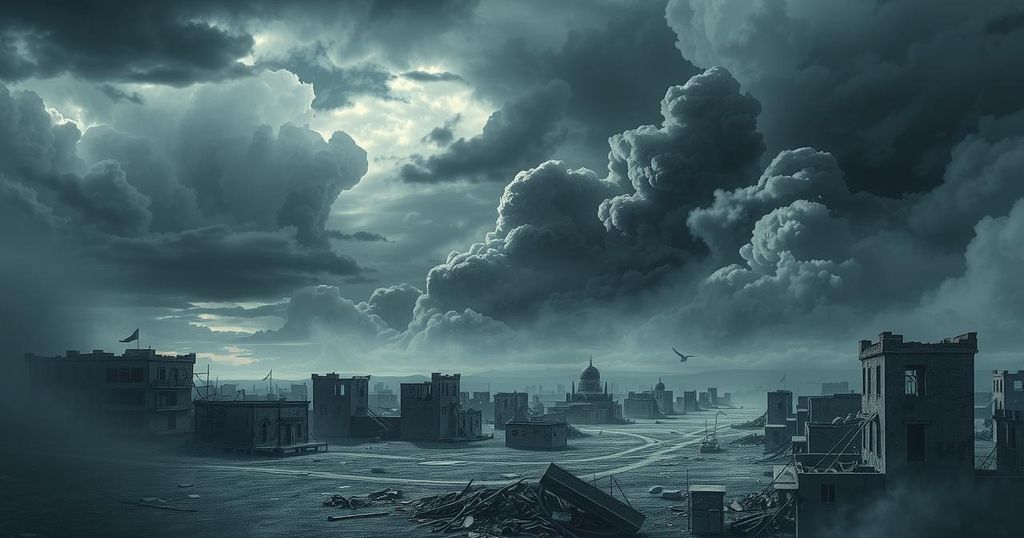This article discusses Putin’s optimism regarding military advancements in Kursk, while Ukrainian leaders counter with strategies to protect their troops. It also highlights international discussions on a ceasefire, potential sanctions against Russia, and the formation of a European reassurance force.
President Vladimir Putin made his first visit to Kursk since Ukraine’s offensive in August 2024, expressing optimism that the Russian military would soon achieve complete liberation of the region. He stated on state television, “I am counting on the fact that all the combat tasks facing our units will be fulfilled, and the territory of the Kursk region will soon be completely liberated from the enemy.”
In response, Ukraine’s army commander-in-chief, General Oleksandr Syrski, suggested that Ukrainian troops were strategically withdrawing to minimize losses. He emphasized, “In the most difficult situation, my priority has been and remains saving the lives of Ukrainian soldiers,” indicating a maneuver to more favorable positions. Syrski also noted significant Russian personnel and equipment losses amidst their attempts to dislodge Ukrainian forces.
Sudzha, the largest settlement recently seized by Ukraine, is reportedly no longer under Kyiv’s full control. Syrski stated, “The enemy is using assault units of airborne troops and special operations forces to break through our defences, oust our troops out of the Kursk region and move fighting to the territory of Sumy and Kharkiv regions.”
Ukrainian President Volodymyr Zelensky conveyed in a press conference that Kyiv is striving to safeguard its soldiers, asserting, “The Russians are clearly trying to put maximum pressure on our troops, and our military command is doing what it has to do. We are preserving the lives of our soldiers as much as possible.”
Former President Donald Trump announced potential financial repercussions for Russia if it does not support a 30-day ceasefire agreement discussed by Ukrainian and US delegations. Zelensky expressed expectations for robust measures from Washington against Moscow if the ceasefire is rejected, emphasizing, “I understand that we can count on strong steps. I don’t know the details yet but we are talking about sanctions [against Russia] and strengthening Ukraine.”
Marco Rubio, the US Secretary of State, stated that Washington is seeking unconditional agreement from Moscow, stating, “That’s what we want to know – if they’re prepared to do it unconditionally. If the response is yes, then we know we’ve made real progress, and there’s a real chance of peace. If their response is no, it would be highly unfortunate, and it’ll make their intentions clear.”
French Defence Minister Sébastien Lecornu indicated that a ceasefire announcement might be imminent and that Europe should prepare to enforce it. Notably, defence ministers from the UK, Germany, Italy, Poland, and France convened to discuss establishing a reassurance force that could ensure peace in Ukraine if an agreement is reached, with up to 30,000 personnel ready to secure Ukraine’s critical infrastructure.
In summary, President Putin’s visit to Kursk signals his confidence in Russia’s military advances, while Ukraine’s leadership continues strategic withdrawals to protect its forces. The proposed ceasefire discussions highlight significant international stakes, with the potential for severe sanctions against Russia should they refuse to comply. As preparations for a peacekeeping force occur, joint efforts from multiple nations in Europe indicate a strong desire for stability in the region.
Original Source: www.theguardian.com




